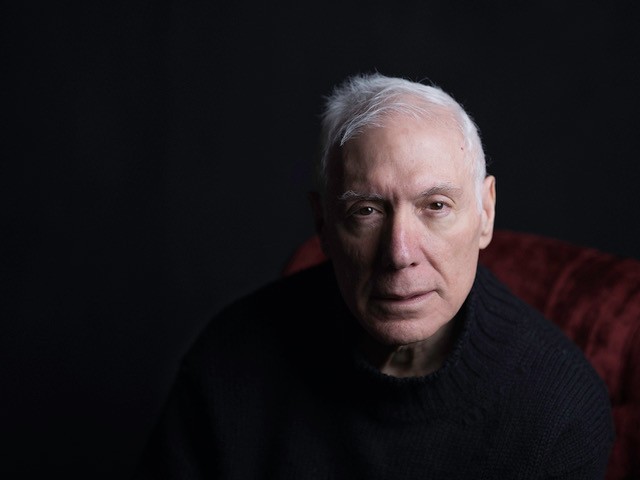Authors and Theorists
Stephen Grosz
Stephen Grosz is a psychoanalyst practising in London and the author of two books. His first, The Examined Life (2013), is a collection of psychoanalytic case histories drawn from twenty-five years of clinical work. The book became an international bestseller, translated into more than thirty languages, read on radio, and adapted for the stage. Writing in The New York Times, Michiko Kakutani praised it for sharing "the best literary qualities of Freud's most persuasive work... a series of slim, piercing chapters that read like a combination of Chekhov and Oliver Sacks." In The Observer, Alexander Linklater wrote that Grosz's case histories "are shaped like short stories, but true and moving in ways that fiction cannot be... Grosz provides, not a definition, but an enactment of the purpose of psychoanalysis, which is both modest and profound."

Photograph ©Bettina von Zwehl.
Grosz's second book, Love's Labour, was first published in the United Kingdom in September 2025. Through a series of new case histories, he examines how psychoanalysis can illuminate the complexities of love. Tara Westover, author of Educated, described it as "a profound meditation on love and healing. Powerful and important. Essential reading." Zadie Smith wrote, "Stephen Grosz knows a lot about the pain and joy of human relationships and in this book he generously shares his wisdom with the rest of us." In the Financial Times, Kathy O'Shaughnessy called it "a compressed, brilliant distillation of 40 years of clinical experience and deep thought, written to last... Grosz conveys what he knows, in all its richness, in as pithy and digestible form as possible."
Central to Grosz's conception of psychoanalysis is the idea that a patient tells and retells the story of their life, working with the analyst to change the parts of that story that have become a trap. "When we cannot find a way to tell our story," he writes, "our story tells us." His emphasis on narrative links him directly to Freud, whose case-study storytelling first captivated him and whose model of the mind continues to shape his clinical thinking. By presenting his work in narrative form, Grosz seeks to offer clinicians a way of approaching difficult moments in their practice and to give general readers a sense of the delicate, creative labour of psychoanalysis.
From 1999 to 2009, Grosz taught “The Case History,” a seminar on the MSc in Theoretical Psychoanalytic Studies at University College London. The course examined the purpose and construction of clinical case histories, placing them in conversation with literature, philosophy, and
literary theory—an approach characteristic of Grosz’s work, which consistently situates psychoanalysis within a wider humanistic tradition.
Born in Indiana in 1952, Grosz studied Politics and Psychology at the University of California, Berkeley, and later read Philosophy, Politics and Economics at the University of Oxford. He first entered psychoanalysis in the United States before beginning his training analysis in London with Amadeo Limentani. His clinical approach has been shaped by Hanna Segal, Ignês Sodré, Anne-Marie Sandler and others. He is a training and supervising analyst of the British Psychoanalytical Society.
Grosz holds that the psychoanalyst is not a sage imparting wisdom, but rather a companion in thought. Far from knowing the answers to a patient’s problems, he sees psychoanalysis as two people “not knowing together,” engaged in a shared search for meaning. His writing reflects the humility and vulnerability at the heart of analytic work—on both sides of the consulting room—where timing, tone, and phrasing are as important as insight. It is here that Grosz the clinician and Grosz the writer meet.
Eleanor Sawbridge Burton, 2017; updated December 2025
Click here to find out more about Stephen Grosz and The Examined Life
Click here to read Stephen Grosz's publications on PEP-Web
